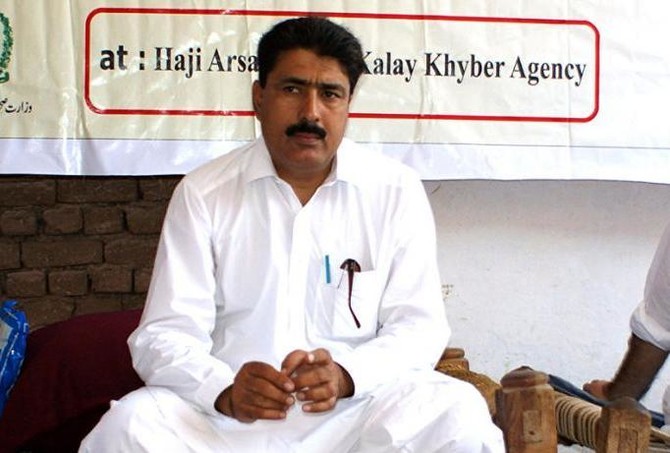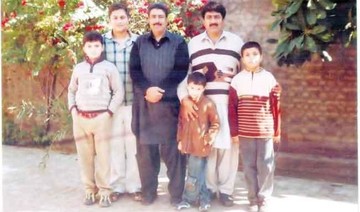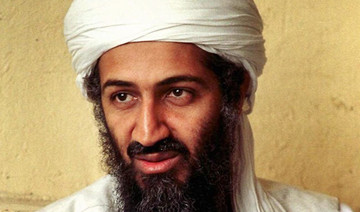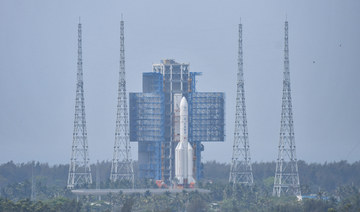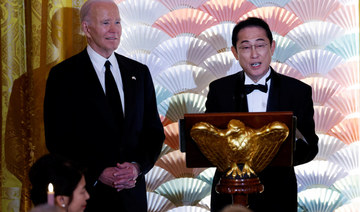LONDON/ISLAMABAD/KARACHI: The US has expressed concerns for the safety of a doctor who helped track down Osama bin Laden, the world’s most wanted terrorist. It follows his transfer to a maximum security prison in Pakistan.
“We are aware of reports that Dr. Shakil Afridi has been transferred to another prison,” said Helaena White, the US State Department’s Bureau of South and Central Asian Affairs spokesperson, told Arab News.
“We expect the government of Pakistan to take all necessary measures to ensure Dr. Afridi’s safety.”
The doctor, regarded as a hero by the US but a traitor in Pakistan, was transferred last month from Peshawar Central Jail, where he had been held since 2012 after being charged with anti-state activity and colluding with terrorists.
The Inspector General for Prisons in the northwest province of Khyber Pakhtunkhwa (KP), Shahid Ullah, said that Afridi was moved on April 27 to the heavily guarded Rawalpindi Central Jail outside Islamabad, but declined to comment on the reason for the sudden transfer.
 ‘High-profile case’
‘High-profile case’
KP government adviser on prisons Malik Qasim Khattak said: “It was our longstanding demand to shift Dr. Afridi from Peshawar.”
He said the doctor was a “high-profile case” and Peshawar prison, which holds the country’s most dangerous criminals and terrorists, was not appropriate for him.
Media reports suggest the authorities took the decision due to “security concerns.” However, details behind the sudden relocation of the high-value prisoner, who has been behind bars for seven years, remain vague.
The shift sparked speculation that Afridi may be released or handed over to the US.
The doctor’s lawyer and cousin, Qamar Nadeem Afridi, interpreted the transfer as a sign his client might be released soon. He said Afridi would complete a 10-year jail sentence on May 23 after official remissions were taken into account.
Afridi was initially sentenced to 33 years in prison on four different counts, but his jail term was reduced to 23 years in 2014. Under Pakistani law, when a prisoner is awarded concurrent sentences, he can be released after completion of his maximum sentence on one charge.
“I am sure Afridi will be released by the end of this month (May 2018),” the lawyer said.
A senior lawyer from Peshawar agreed that under Pakistani law Afridi could be released later this month, but said it was “unlikely that he will be set free.”
Latif Afridi (no relation to the doctor) said there was little chance of the prisoner being handed over to the US.
Afridi was charged under the Frontier Crimes Regulations, referred to as tribal law in the Federally Administered Tribal Areas, which would also hinder his release.
The doctor was charged with murder for trying to save a young boy stricken with appendicitis in 2005 while he was the Khyber Agency’s physician, according to his lawyer.
Afridi’s older brother, Jamil, said: “I am extremely anxious and don’t have any information on the whereabouts of my brother.”
He said Peshawar prison officials had refused to speak to him when he sought information on Afridi’s whereabouts.
Jamil was planning to meet Afridi before the news of his brother’s prison transfer became public. “I was going to meet him on Monday, but then this happened.”
Rescue bid
 Russia’s Sputnik news agency claimed on April 30 that an attempt to help Afridi escape had been foiled by the Pakistani intelligence agency ISI last December.
Russia’s Sputnik news agency claimed on April 30 that an attempt to help Afridi escape had been foiled by the Pakistani intelligence agency ISI last December.
The agency said the CIA was behind the bid to rescue him.
Jamil said that he was surprised to hear of an alleged jailbreak attempt planned by the CIA. His last meeting with his brother in February was held under unusualy tight security, he said.
“The intelligence detail was doubled on my visit. Usually there would be two guards, but this time there were four,” he said.
“Strangely, they allowed me to meet Shakil fairly quickly in less than half an hour and then introduced me to a Jirga (tribal council) who had come to speak on a murder case involving my brother. I refused to meet them.”
A Pakistan Foreign Ministry spokesman on May 3 denied any knowledge of a jailbreak attempt involving Afridi.
However, three senior security officials, who declined to be named, later told Arab News that Afridi was shifted to Punjab over credible intelligence reports of a planned jailbreak.
A US official privately rejected the claim that CIA had made an attempt to break Afridi free, calling it “propaganda without proof.”
The official said the Russian report raised more questions than it answered.
Afridi’s imprisonment has been a major thorn in Pakistan-US relations. Islamabad has rejected repeated American calls to free Afridi.
He was apprehended by intelligence officials on May 23, 2011, days after US special forces raided Osama bin Laden’s compound in Abbottabad and killed the Al-Qaeda chief.
The doctor ran a fake vaccination campaign to track down and confirm Bin Laden’s presence in the city at the behest of the CIA.
Pakistan’s Foreign Ministry spokesman, Dr. Mohammed Faisal, has denied reports of a deal between Pakistan and the US to free Afridi. “There is no deal underway to hand over Afridi to the US,” said.
“We will never hand over Afridi to America,” a senior security official said.
Meanwhile, the US keeps pushing to break the stalemate.
“We believe Dr. Afridi has been unjustly imprisoned and have clearly communicated our position to Pakistan on Dr. Afridi’s case, both in public and in private,” said Helaena White.


